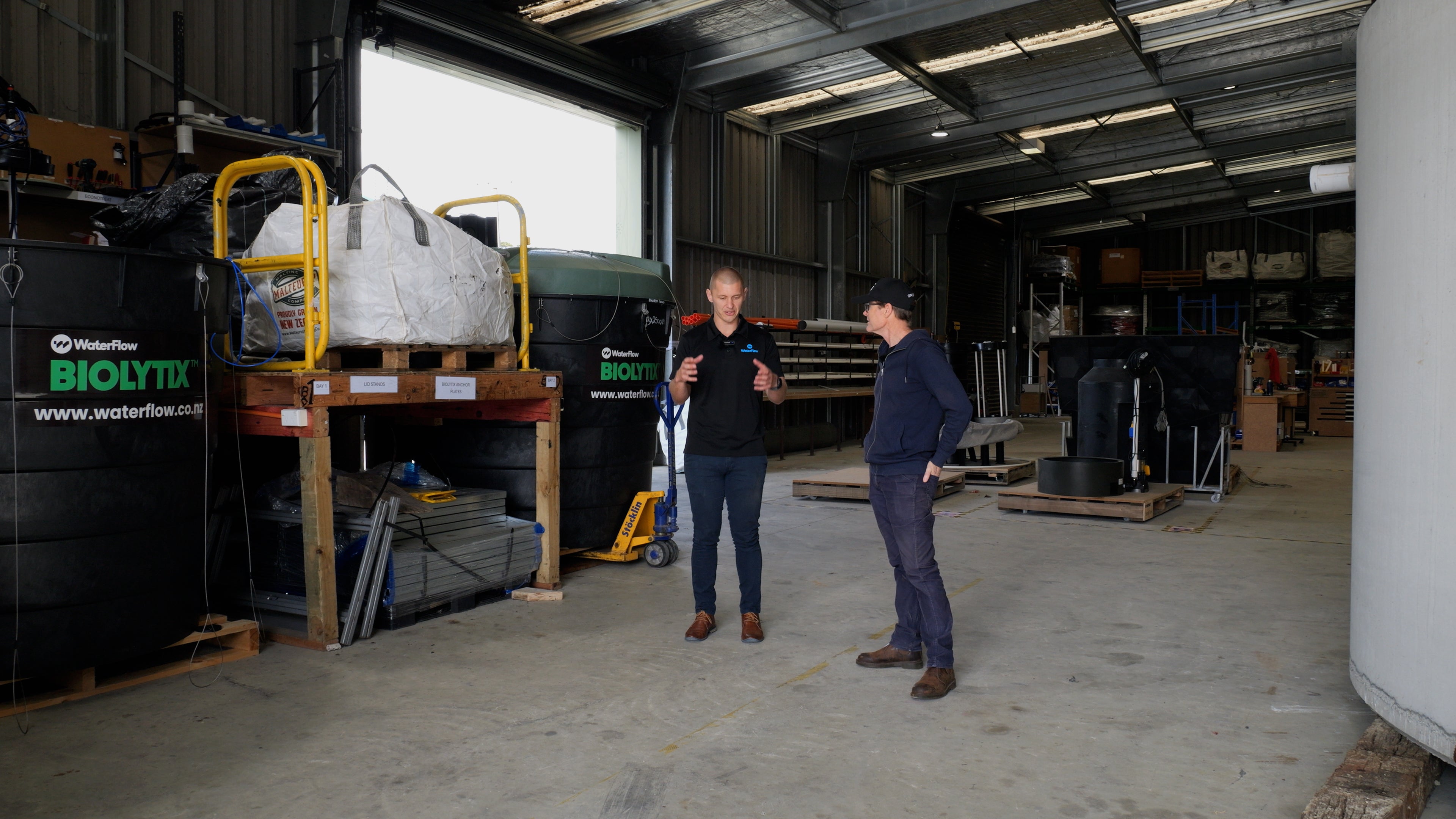Off-Grid Wastewater Solutions: Sustainable Systems with WaterFlow
When you’re planning an off-grid lifestyle, one of the biggest challenges is something many people don’t think about straight away: what to do with wastewater. From toilets to showers and kitchen sinks, wastewater management is essential for both comfort and environmental protection.
Recently, we visited WaterFlow, a New Zealand company leading the way in sustainable, reliable wastewater solutions. Guided by Caleb Pirini, WaterFlow’s National Sales Manager, we explored their history, innovative systems, and why wastewater should be considered early in your off-grid journey.
The WaterFlow Story
WaterFlow began over 26 years ago when founder Steven Hoyle was looking for a better option than the traditional septic tanks or high-powered aerated systems on the market at the time. He wanted something:
- More sustainable
- With less sludge build-up
- That didn’t rely heavily on power
That vision grew into the Wormorator system, which evolved into today’s NaturalFlow range. Over the years, WaterFlow expanded to provide a full suite of wastewater, water tank, and drainage solutions.
Wastewater Systems for Off-Grid Living
WaterFlow manufactures four main products:
- Septic Tank – The traditional option, still used today.
- NaturalFlow – A passive, worm-based system using vermiculture to treat waste without limited power needs.
- BioPod – A worm-based system that meets secondary treatment standards, offering greater compliance flexibility.
- EconoTreat – An aerated system for areas with stricter environmental requirements.
For off-gridders, the NaturalFlow and BioPod are the most popular choices thanks to their low power usage, sustainable design, and ability to integrate with solar setups.
Why Sustainability Matters
WaterFlow’s mission is summed up in two statements:
- Bringing Clarity to Wastewater – Making a complex, “mystical” industry easier for homeowners to understand.
- Protecting Our Backyard – Ensuring wastewater systems protect the land they discharge into, keeping catchments safe for generations.
As Caleb explained, sustainability isn’t just about choosing a system that works today, it’s about creating solutions that can cope with increased population density and environmental regulations in the future.
Council Consent & Compliance
Wastewater systems often require council approval, and costs can vary depending on the site and system. For simple permitted activities, consent might be around $2,500, while more complex discharge consents can reach $7,000–$10,000.
WaterFlow helps customers navigate this process, offering both system design and consent support, ensuring installations are both compliant and effective.
👉 Find your regions local council contact details here.
Inside the WaterFlow Factory
During our visit, we toured WaterFlow’s Maungaturoto factory, where systems like the BioPod and EconoTreat are built. Each product is carefully assembled with sustainability and ease of use in mind, making wastewater treatment more reliable for homeowners across New Zealand.
Why Wastewater Planning Is Essential for Off-Grid Living
If you’re building off-grid, wastewater design should be part of your early planning process. Some systems require small amounts of power for pumps or blowers, which impacts your solar and battery sizing. Choosing the right system from the start can save thousands in redesign costs later.
Don't wait - start you research now!
👉 Learn more at WaterFlow’s website or reach out to discuss which system is right for your property.
👉 Use Gridfree's solar calculator to see what your power requirements are and see which solar package will suit you best!


